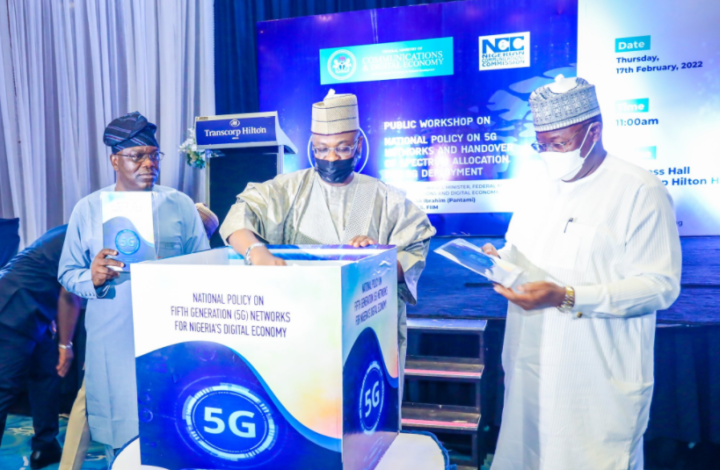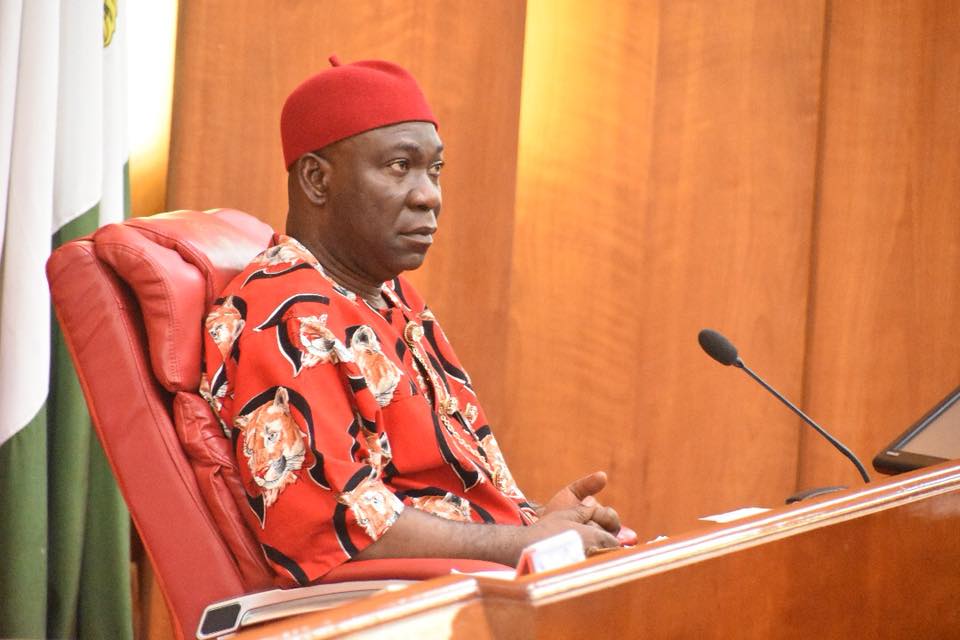In the euphoric readiness to receive 5G services into the country’s telecom ecosystem, nobody is noticing the fast disappearing line between the regulator, the Nigerian Communications Commission (NCC) and the Ministry of Communications and Digital Economy, headed by a Minister in the Ministry. While the regulator is in charge of regulating the industry, the Ministry is mostly concerned with policies properly framed to help grow the industry. That is what the Nigerian Communications Act 2003 says but this in practice can be tossed through the window especially if there is a head of the ministry that is froth with power and indecency.
A little story in the papers last week troubles the mind. It was reported that the regulator has issued 5G Licences to MTN and Mafab Communications at an occasion where the operators were told to roll out services in August. The other day it was the Federal Government officially handing over 5G Spectrums to the NCC long after the auction took place; meaning that during the auction there were really no products for sale. And a licence cost $273.6m!
There was something a little bit odd in this development. The NCC has issued major licences since 2001, never has there been this level of sustained, orchestrated jubilee of little feats. For the discerning, the industry needs concentrated attention to redeem it from a litany of problems. But at the moment it seems we are more concerned just with the existence of the industry and organising little episodic celebrations rather than curing it of its ills.
This writer is apprised of enough information that the regulator would like to go on with its daily regulatory schedules but for external pressures and meddlesomeness which are nearly squeezing life out of it. Or how would one ever explain the regulator directing the two licensees to rollout service from August this year. Was it the regulator speaking or it was just a ventriloquist for another voice? Will the regulator deliberately go against its rules?
Advertisement
The rules may not be cast in stone but they are out there, in the licensing documents as a guide to what happens in the industry in the days and years ahead. This is captured in the Information Memorandum which appears flexible and quite accommodating of the weaknesses in the industry. This is what the document says about the roll out of 5G commercial services.
“The launch of commercial services shall be not later than 12 months after the effective date of the Licence.” Really, it is not in months because of the challenging nature of 5G roll out.
For effective roll out, coverage and full compliance with spelt out service obligations, the successful bidder shall be assigned the 3.5 GHz Frequency licence and the Unified Access Service Licence (UASL) where applicable and shall roll out services as follows: Year 1 to 2 – Starting from the effective date of the licence. Rollout service in at least one State in each geo-political zone: SW, SS, SE, NC (Including FCT), NW and NE.
Advertisement
From Year 3 to 5, additional 6 States other than those in Year 1 to 2, across the six geo-political zones, while from Year 6 to 10, Operators are encouraged to roll out across all other States. Please note that Service in each state would mean a minimum of 5 sites in a state. Minimum speed of 100 Mbps DL using applicable test measurement tools.
MTN’s UASL expired last year after a duration of twenty years and was subsequently renewed in August to take effect from September 1, 2021. One can say MTN has been ready ever since for an effective 5G roll out. At the moment, this writer was reliably informed, the UASL licence for Mafab is being processed to enable the rookie organisation achieve a universal (national) service roll out. This also means that Mafab is at the point of crossing what seems to be the final huddle in its audacious attempt to join the elite group of service providers. Things are falling in place pretty well and a stampede into action by any entity should not be encouraged at all.
Heading towards the 5G licensing, I was fascinated to find everybody occupying his/her lane on the road in the regulatory process. Going through the 5G Policy again one could see the Minister, Dr Isa Pantami, painstakingly explaining his involvement in developing the Policy, quoting the relevant sections of the Act, Section 23, which says: The Minister shall have the following responsibilities and functions pursuant to the Act – (a) the formulation, determination and monitoring, of the general policy for the communications sector in Nigeria with a view to ensuring, amongst others, the utilisation of the sector as a platform for the economic and social development of Nigeria; (b) (Section 25) The Minister shall, in writing, from time to time notify the Commission of and express his views on the general policy direction of the Federal Government in respect of the communications sector.
The Minister has relied on sections of the Act to develop a 5G Policy for Nigeria, which so far, has been keenly interpreted by the regulator in developing a licensing document, including service obligations that will do the nation good. However, time has come for all parties to follow the second part of Section 25, which says, In the execution of functions and relationship with the Commission, the Minister shall at all times ensure that the independence of the Commission, in regards to the discharge of its functions and operations under this Act, is protected and not compromised in any manner whatsoever.
Advertisement
We shall return to that. As the nation gears up for 5G services, it may be relevant to recall some industry problems, even listed in the Policy. They include but are not limited to multiple taxation, right of way (RoW) challenges in nearly all parts of the country, and power. At the moment power generation is at an all time low in the country, thus needing genuinely concerted action or even a miracle to elevate it to a minimal level of acceptability. The activities surrounding 5G roll out are intense and demanding. More small unit base stations are needed for service to even happen. It is cost intensive and extremely demanding and challenging in terms of cost and labour. The government therefore must play its role in mitigating the headache of those with the large heart to invest in the industry.
On a final note, an Annual Stakeholders Consultative Forum on New Technologies was scheduled for Sheraton, Lagos on Monday, May 10, 2022. The forum was highly publicised but cancelled in the last minute after a compressive arrangement had been put in place. The reason for the cancellation is totally disambiguated. Pray, who is afraid to really hold up Section 25 of the Nigerian Communications Act 2003 and wave it on the face of any intruding supremo?
Views expressed by contributors are strictly personal and not of TheCable.
Add a comment







